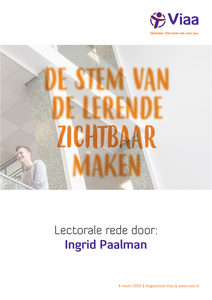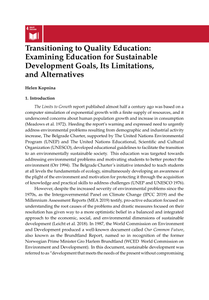Worldwide, pupils with migrant backgrounds do not participate in school STEM subjects as successfully as their peers. Migrant pupils’ subject-specific language proficiency lags behind, which hinders participation and learning. Primary teachers experience difficulty in teaching STEM as well as promoting required language development. This study investigates how a professional development program (PDP) focusing on inclusive STEM teaching can promote teacher learning of language-promoting strategies (promoting interaction, scaffolding language and using multilingual resources). Participants were five case study teachers in multilingual schools in the Netherlands (N = 2), Sweden (N = 1) and Norway (N = 2), who taught in primary classrooms with migrant pupils. The PDP focused on three STEM units (sound, maintenance, plant growth) and language-promoting strategies. To trace teachers’ learning, three interviews were conducted with each of the five teachers (one after each unit). The teachers also filled in digital logs (one after each unit). The interviews showed positive changes in teachers’ awareness, beliefs and attitudes towards language-supporting strategies. However, changes in practice and intentions for practice were reported to a lesser extent. This study shows that a PDP can be an effective starting point for teacher learning regarding inclusive STEM teaching. It also illuminates possible enablers (e.g., fostering language awareness) or hinderers (e.g., teachers’ limited STEM knowledge) to be considered in future PDP design.
LINK
De onderzoeksvraag voor deze les is: Hoe word je stem zichtbaar in het leerproces? Graag wil ik u meenemen in mijn gedachten hierover en u van harte uitnodigen om met mij uw eigen gedachten te formuleren.
DOCUMENT

Despite the willingness of many educational institutions worldwide to embrace Education for Sustainable Development and Education for Sustainable Development Goals, critical scholars have pointed out that the very enterprise of sustainable development is not without its contradictions. Therefore, any education that engages with sustainable development needs to be carefully reviewed, rather than supported, in its ambition to promote the supposedly universally desirable aims. The rhetoric of sustainable development as meeting the needs of present and future generations is largely anthropocentric in failing to take nonhuman species into account when setting up pragmatic and ethical objectives. Similarly to the Millennium Development Goals (MDGs) that have helped to raise living standards across the world, but have largely failed to address environmental sustainability challenges, the Sustainability Development Goals (SDGs) tend to prioritize “inclusive economic growth” at the expense of ecological integrity, which is very likely to negatively affect not only nonhuman species but also future generations and their quality of life. Thus, as this chapter will argue, universally applicable Education for Sustainable Development Goals (ESDGs) is problematic in the context of addressing the long-term sustainability for both human and nonhuman inhabitants of the planet. Given escalating climate change, biodiversity loss, pollution, and depletion of natural resources, this chapter questions whether ESDGs can qualify as a desirable “quality education”. The paradoxes of sustainable development and ways forward that seem a better alternative for ESDG include indigenous/traditional learning, ecopedagogy, ecocentric education, and education for degrowth, steady-state, and Cradle-to-Cradle and circular economy. Advantages of universal education are also highlighted, as any education that supports basic literacy, numeracy, and values attributed to the intrinsic rights of humans and nonhumans can help students to be equipped to deal with social and environmental challenges. https://doi.org/10.3390/books978-3-03897-893-0-1 LinkedIn: https://www.linkedin.com/in/helenkopnina/
MULTIFILE

Numeracy and mathematics education in vocational education is under pressure to keep up with the rapid changes in the workplace due to developments in workplace mathematics and the ubiquitous availability of technological tools. Vocational education is a large stream in education for 12- to 20-years-olds in the Netherlands and the numeracy and mathematics curriculum is on the brink of a reform. To assess what is known from research on numeracy in vocational education, we are in the process of conducting a systematic review of the international scientific literature of the past five years to get an overview of the recent developments and to answer research questions on the developments in vocational educational practices. The work is still in progress. We will present preliminary and global results. We see vocational education from the perspective of (young) adults learning mathematics.
LINK
Recent research has indicated an increase in the likelihood and impact of tree failure. The potential for trees to fail relates to various biomechanical and physical factors. Strikingly, there seems to be an absence of tree risk assessment methods supported by observations, despite an increasing availability of variables and parameters measured by scientists, arborists and practitioners. Current urban tree risk assessments vary due to differences in experience, training, and personal opinions of assessors. This stresses the need for a more objective method to assess the hazardousness of urban trees. The aim of this study is to provide an overview of factors that influence tree failure including stem failure, root failure and branch failure. A systematic literature review according to the PRISMA guidelines has been performed in databases, supported by backward referencing: 161 articles were reviewed revealing 142 different factors which influenced tree failure. A meta-analysis of effect sizes and p-values was executed on those factors which were associated directly with any type of tree failure. Bayes Factor was calculated to assess the likelihood that the selected factors appear in case of tree failure. Publication bias was analysed visually by funnel plots and results by regression tests. The results provide evidence that the factors Height and Stem weight positively relate to stem failure, followed by Age, DBH, DBH squared times H, and Cubed DBH (DBH3) and Tree weight. Stem weight and Tree weight were found to relate positively to root failure. For branch failure no relating factors were found. We recommend that arborists collect further data on these factors. From this review it can further be concluded that there is no commonly shared understanding, model or function available that considers all factors which can explain the different types of tree failure. This complicates risk estimations that include the failure potential of urban trees.
MULTIFILE

This reports is about content and language integrated learning (CLIL) in multilingual primary classrooms. While in theory CLIL offers many opportunities for inclusive education in multilingual settings, questions remain as to how integrated language teaching can be realised, and what teacher knowledge is required for this. This research used a CLIL Teaching Wall activity and interviews with UK and Dutch primary school teachers to capture teacher knowledge underlying decision-making in actual multilingual classrooms. The report presents a framework of CLIL teacher knowledge that emerged from this work.
DOCUMENT

To reach for abstraction is a major but challenging goal in mathematics education: teachers struggle with finding ways how to foster abstraction in their classes. To shed light on this issue for the case of geometry education, we align theoretical perspectives on embodied learning and abstraction with practical perspectives from in-service teachers. We focus on the teaching and learning of realistic geometry, not only because this domain is apt for sensori-motor action investigations, but also because abstraction in realistic geometry is under-researched in relation to other domains of mathematics, and teachers’ knowledge of geometry and confidence in teaching it lag behind. The following research question will be addressed: how can a theoretical embodied perspective on abstraction in geometry education in the higher grades of primary school inform current teacher practices? To answer this question, we carried out a literature study and an interview study with in-service teachers (n = 6). As a result of the literature study, we consider embodied abstraction in geometry as a process of reflecting on, describing, explaining, and structuring of sensory-motor actions in the experienced world through developing and using mathematical artifacts. The results from the interview study show that teachers are potentially prepared for using aspects of embodied learning (e.g., manipulatives), but are not aware of the different aspects of enactment that may invite students’ abstraction. We conclude that theories on embodiment and abstraction do not suffice to foster students’ abstraction process in geometry. Instead, teachers’ knowledge of embodied abstraction in geometry and how to foster this grows with experience in enactment, and with the discovery that cognition emerges to serve action.
LINK
Individuals with autism increasingly enroll in universities, but little is known about predictors for their success. This study developed predictive models for the academic success of autistic bachelor students (N=101) in comparison to students with other health conditions (N=2465) and students with no health conditions (N=25,077). We applied propensity score weighting to balance outcomes. The research showed that autistic students’ academic success was predictable, and these predictions were more accurate than predictions of their peers’ success. For first-year success, study choice issues were the most important predictors (parallel program and application timing). Issues with participation in pre-education (missingness of grades in pre-educational records) and delays at the beginning of autistic students’ studies (reflected in age) were the most influential predictors for the second-year success and delays in the second and final year of their bachelor’s program. In addition, academic performance (average grades) was the strongest predictor for degree completion in 3 years. These insights can enable universities to develop tailored support for autistic students. Using early warning signals from administrative data, institutions can lower dropout risk and increase degree completion for autistic students.
DOCUMENT

In this study self-reported stress and burn-out levels between general and special education teachers in the Netherlands are compared. More than eight hundred teachers were assessed with the Utrechtse Burnout Schaal (UBOS-L/MBI) to determine their levels of emotional exhaustion, depersonalization, and personal accomplishment within the school context. We also used instruments to measure different stress indicators (personal characteristics: self-efficacy, negative affect, and student characteristics: student responsibility and discipline, studentpeer relationships, and class size). Contrary to recent findings in the United States (Shoho, 2002), results regarding burnout did not show any significant differences between general education teachers (n=604) and special education teachers (n=206). However, we do find significant differences in stress indicators explaining burnout. We also looked for factors other than those intrinsic to teaching, by crossnationally comparing teacher stress and burnout. Teachers in the U.S. and the Netherlands differ significantly in burnout level. U.S. teachers experience more burnout.
DOCUMENT

Bijdragen aan gelijke kansen van alle leerlingen, ongeacht herkomst, welke onderwijsprofessional wil dat niet? Maar de daad bij het woord voegen vergt nogal wat. Het Nederlandse onderwijs is er ook nog onvoldoende op ingericht. Hoe lukt het leraren om een aantal inclusieve didactische strategieën in hun praktijk te beproeven? Rond deze vraag heeft het lectoraat Meertaligheid en Onderwijs de laatste drie jaar samen met het lectoraat Didactiek van het Bèta- en Technologieonderwijs een vernieuwend, internationaal project uitgevoerd, het ‘Inclusive Science Education’ project (gefinancierd door NRO en Nordforsk). In deze lunchlezing nemen we jullie mee in de zoektocht. De uitkomsten zijn zowel wetenschappelijk als praktisch relevant voor opleidingen en professionalisering en voor de ambities die de HU heeft in de regionale ondersteuning. Inclusieve lespraktijk We schetsen hoe we het ontwerponderzoek met 21 basisschoolleraren in Noorwegen, Zweden en Nederland hebben uitgevoerd en hoe we steeds school- en vaktaalontwikkeling in vakonderwijs hebben ingebouwd. De leraren zijn gedurende het project gevolgd met verschillende onderzoeksinstrumenten, zoals vragenlijsten en video-opnames in de lespraktijk, en dit materiaal hebben we geanalyseerd met een multidisciplinair team van onderzoekers en opleiders. Wat hebben de leraren geleerd en hoe hebben zij inclusieve strategieën leren gebruiken in hun lespraktijk? Met concrete voorbeelden geven we een inkijkje hoe Nederlandse, Noorse en Zweedse leraren vanuit dezelfde input hun eigen onderwijs maakten. We hebben unieke beelden van leerlingen die heel natuurlijk hun Turks en Nederlands inzetten bij het leren rond het thema plantengroei. Het doorbreken van de eentalige praktijk is een heet hangijzer in het Nederlandse onderwijs, maar het voorbeeld laat zien hoe functioneel een meertalige werkwijze kan zijn. Ten slotte vatten we samen wat de analyses ons tot nu toe hebben geleerd. De komende jaren blijft ons lectoraat verder zoeken naar het gebruiken van taalverschillen en differentiëren om alle leerlingen actief tot leren te brengen.
MULTIFILE
